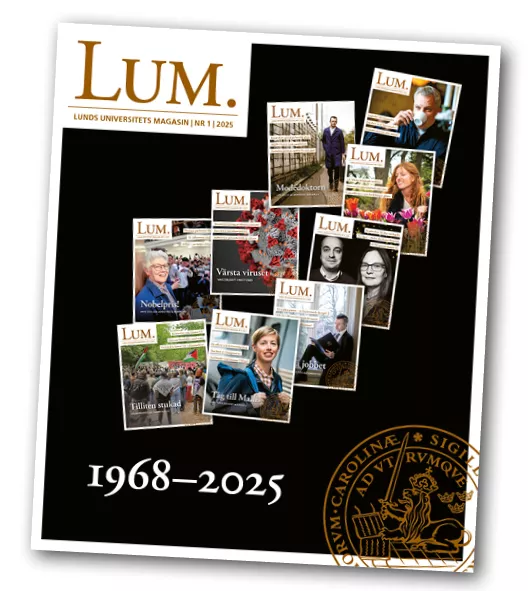Linnea Wegerstad researches sexual offences and has a background as a judge in training.
She was about halfway through this training when she chose to return to academia. A senior lecturership was advertised at the faculty, which does not happen very often, so she took her chance.
“My hope is to be able to combine research, teaching and working in court. Real world experience enlivens teaching and I get interesting research ideas in court,” says Linnea Wegerstad, who still makes some appearances as a judge.
Important to understand the legal system
It is because of this role that she also sees a great need to explain how courts operate. Perhaps especially in a climate of harsher debate where criminalisation is increasingly seen as the solution to many social and political problems.
“The fact that so few people understand the workings of the courts poses a problem for their legitimacy,” says Linnea Wegerstad.
She also sees a societal trend of increasingly naming and shaming criminals, while the political discourse emphasises “law and order” in criminal policy.
“There is a strong idea that rapists are monsters. Either you are a rapist, that is a monster, or you are a normal guy who doesn’t rape.”
Normal people
That the world is far from black and white was an insight that hit her with full force once she started sitting in the judge’s chair.
“Working in court is valuable, because you soon realise that those who stand accused are normal people. There is an idea that people who have committed crimes are abominable and must be harshly punished,” says Linnea Wegerstad.
She has even participated in a debate in the newspaper Sydsvenskan, alongside Ulrika Andersson, professor at the same faculty, in which they argued against the Government’s proposal to increase penalties for sexual offences.
“It was an easy article to write, as so many consultation bodies were against the proposal. I wanted to show that there was strong opposition,” says Linnea Wegerstad.
Journalists often call
Like her colleagues in criminal law, Linnea Wegerstad is often called upon by journalists to comment on various controversial rulings. She is more than willing to clarify topics within her area of expertise, but she feels that questions can come on “anything and everything”.
SVT asked her to comment on the phenomenon of “stealthing”, that is when a condom is removed without consent during intercourse. According to Linnea Wegerstad, this can be perceived as sexual molestation and anyone who feels violated by this behaviour can report it to the police.
Another area that interests the media is the focus of her research, defamation. Defamation became controversial during the #metoo movement when women who identified men as perpetrators, often on social media, were later convicted. Most notable was probably the female journalist who singled out a famous person on Instagram.
Linnea Wegerstad is interested in the difference between informal justice-seeking, where social media is used for redress, and formal justice, which begins with a police report. In her materials, she has twelve different defamation rulings from 2018 to 2020.
Studied defamation rulings
She has also studied defamation rulings from the perspective of the victim’s freedom of expression and how this should be weighed against another person’s interest in not being labelled as a perpetrator.
“There is a victim perspective here that is not being addressed. The injured party may have an interest in talking about it. In those cases it could be important that it was a stepfather or ex-husband who was behind what happened,” says Linnea Wegerstad.
Swedish legislation is aimed at preventing people from spreading untrue information, but also protecting people from rumours being spread about them, regardless of whether the defamatory information is true or not. This last aspect is especially emphasised in Swedish legislation.
At the same time, Linnea Wegerstad notes that the law on defamation dates back to 1962 and that we live in a different time now. If a person is allowed by law to disseminate information to a small circle of close friends and relatives, can this small circle today consist of a closed Facebook group?
“There’s nothing new about spreading the word that someone is a paedophile or a rapist, but what is new is to say that this person did this to me. I think there is room for freedom of expression to carry more weight than it does today,” says Linnea Wegerstad.



